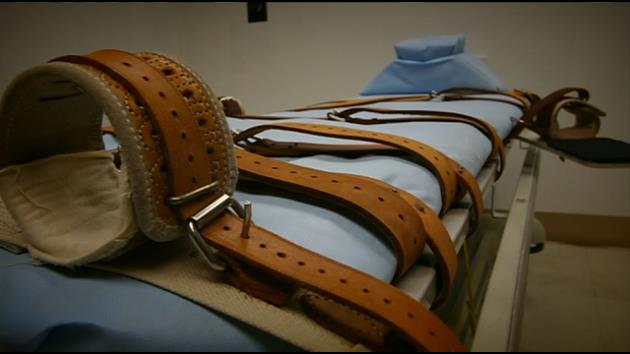TALLAHASSEE, Fla. (AP) — The Florida Supreme Court said it was wrong when it previously ruled the death penalty could not be imposed without a unanimous jury decision in a opinion released Thursday that could affect dozens of pending cases.
The ruling reverses a 2016 state Supreme Court decision requiring a unanimous jury decision before a convicted murderer could be sentenced to death. That decision led the Legislature to change Florida law to fit the ruling.
Since the original ruling, dozens of death row inmates who were sentenced to die on non-unanimous jury decisions have been granted new sentencing hearings. Thursday’s ruling involved a 2005 Polk County murder. A trial judge granted Mark Poole a new sentencing hearing, but the state appealed.
The Supreme Court agreed with the state and said Poole’s death sentence should stand.
“It is no small matter for one Court to conclude that a predecessor Court has clearly erred,” the court said in it’s ruling. “Our court … got it wrong.”
In a harsh dissenting opinion, Justice Jorge Labarga noted Alabama is the only state that doesn’t require a unanimous jury decision to impose the death penalty.
“The majority returns Florida to its status as an absolute outlier among the jurisdictions in this country that utilize the death penalty,” Labarga wrote. “The majority gives the green light to return to a practice that is not only inconsistent with laws of all but one of the twenty-nine states that retain the death penalty, but inconsistent with the law governing the federal death penalty.”
The make up of the court has gone from leaning liberal in 2016 to firmly conservative. Three liberal justice on the seven-member court were forced to retire because of age limits on the same day Republican Gov. Ron DeSantis took office. That gave DeSantis the opportunity to appoint three conservative judges. Two of those justices have since been appointed to a federal appeals court and were not part of Thursday’s 4-1 decision.
Confusion over Florida’s death penalty laws began after a 2016 U.S. Supreme Court ruling in the case of Timothy Lee Hurst, who was convicted of using a box cutter to kill a coworker at a Pensacola fast-food restaurant in 1998. A judge imposed the a death sentence after a 7-5 jury recommendation.
The U.S. Supreme Court ruled the sentence was unconstitutional because the judge had too much weight in the decision.
Executions were halted for months while the state sorted out the issue. The Legislature first passed a bill requiring a 10-2 jury recommendation, but the state Supreme Court overturned it. In 2017, the law was changed to require a unanimous jury decision.
As dozens of death penalty cases were returned to trial court for new sentences, some prosecutors opted to simply agree to sentences of life without parole to avoid new sentencing hearings, often to spare families the pain of reliving their tragedies.
The Legislature is wrapping up the second week of it’s annual 60-day session. It’s too early to tell whether lawmakers will want to again change the death penalty law in light of Thursday’s ruling.
Copyright 2024 The Associated Press. All rights reserved. This material may not be published, broadcast, rewritten or redistributed.

